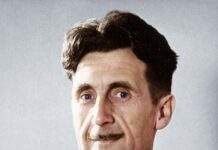Voltaire | Candid | A Brief Comment
Voltaire | Candid | A Brief Comment
Voltaire | Candid | A Brief Comment
‘Candid’ is a fantastic picaresque type of novel written by Voltaire (1694- 1778), a reputed French novelist and philosopher. Love, social corruptions, human insecurity, inhumanity, treachery, debauchery, pretext, etc. are the main theme of the novel. It is highly humorous and ironic in treatment. Through this novel, the novelist has criticized the social-political system not only of France but of the entire mankind of his time.
It is a story of a young boy named Candid who was a child of a servant to a German Baron called Thundertentrunk. He fell in love with Kunegunda, a fascinating daughter of the Baron. But on the very first day of their lovemaking, the Baron happened to see their act of embracing and thence Candid was driven away from the Baron’s household. Then he became a picaro (wonderer/ vagabond) and began to wander from place to place, land to land, and happen to suffer a lot in life. Wherever he went, he became the victim of human injustice, cruelty, fraud, pretext, and hardship. He travelled to almost all the major European and African countries and happened to gather a lot of bitter experiences in life. He met many people with whom intimacy developed. But all the people he met were as unlucky as Candid was. Besides this, there are many episodes in the novel which show that the world is full of sin and injustice.
In the novel, there are many Characters as- Candid, Kunegunda, Penglosse, Kakambu and many others. All the major characters turned to be vagabonds for the vicissitude of circumstance and became disgusted to live. At last, the main characters namely Candid, Kunegunda, Penglosse, Kakambu, Martin and a Russian old woman settled down in Constantinople and took to working as farmers. All the characters have portrayed as a type of poor and afflicted though they are rich with individual traits.
In narrating the story, the author has employed the Objective Method with skill. In this method, an author keeps himself away from his story and delineates his story objectively.
In Structure, the novel may be called a loose one as there is not a specific plot but a multitude of episodes huddled together. There is a beginning and complication but neither climax nor denouement.
The Setting of the story is consistent with the events and situation though many times they are exaggerated.
The Dialogues employed in the story are no doubt very sparing and they have led the characters to an indefinite future but the dialogues have shown no miserliness in revealing the inner motives, feelings and emotions of the characters.
The Philosophy of Life that has been expressed in the novel is that the world is full of sins, inhumanity, cruelty, sorrows, and sufferance and if there is some peace, it is in working as a farmer.
The Language of the story is very simple as it is characterized by the use of concrete and formal words and phrases and is free from poetic imagery and much emotional expression.
Though it is a well-read novel, yet it lacks fidelity to life. The characters of the novel are shown so much suffering in life that can hardly be believed. To conclude it is to say that though the novel is a highly fantastic one, yet it must be admitted that the author has succeeded in portraying all the facets of social corruption of his age in a critical and ironic vein. 0 0 0
Read More: Use of Wit and Irony in Pride and Prejudice
N. B. This article entitled ‘Voltaire’s Novel Candid-A Brief Comment’ originally belongs to the book ‘World Novel Criticism‘ by Menonim Menonimus.
Related Searches:
- Candid-Introduction, Summary
- A Candid View of Candide
- Voltaire’s Candide Summary, Analysis
- The Call of the Wild-Summary, Characters, Facts
Books of Literary Criticism by M. Menonimus:
- World Short Story Criticism
- World Poetry Criticism
- World Drama Criticism
- World Novel Criticism
- World Essay Criticism
- Indian English Poetry Criticism
- Indian English Poets and Poetry Chief Features
- Emily Dickinson’s Poetry-A Thematic Study
- Walt Whitman’s Poetry-A Thematic Study
- Critical Essays on English Poetry
- Tawfiq al-Hakim’s Novel: Return of the Spirit-An Analytical Study
- Tawfiq al-Hakim’s Novel: ‘Yawmiyyat Naib Fil Arayaf’-An Analytical Study
- Analytical Studies of Some Arabic Short Stories
- A Brief History of Arabic Literature: Pre-Islamic Period …











